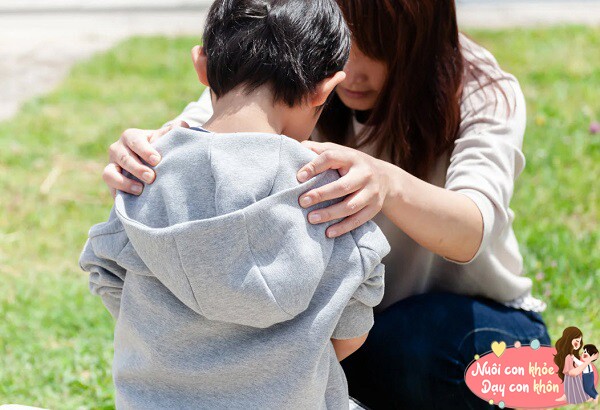It can be challenging for parents to face such changes and not feel a sense of confusion, disappointment, or even resentment.

Don’t give in to anger; maintain emotional composure
It’s crucial for parents not to let their anger dictate their behavior. Maintaining emotional stability is key, and it’s important to remember that anger can lead to hasty decisions that may severely damage the parent-child relationship.
Warmth and love are always the most effective ways to soothe a rebellious child. When parents approach situations with empathy and patience, children feel respected and heard, rather than opposed. Every family member is intimately connected, and there’s no need to escalate issues to tense conclusions.

Parents should refrain from letting anger govern their behavior.
Emotional stability helps reduce conflicts and facilitates resolving emerging issues. When we remain calm, we can view situations more objectively and find reasonable solutions to disagreements.
In fact, sometimes the best way to resolve a problem is not by arguing or raising our voices but by remaining silent and composed. Patience in difficult moments can be a more powerful response than words. When parents face situations with calmness, they set an example for their children, teaching them how to manage their emotions and deal with issues healthily in the future.

Don’t scold; step back to move forward
Franklin once said, “Argument is a game played by two people, in which one seeks to prove the other wrong.” In daily life, we often show our best qualities to strangers but easily display impatience and anger towards those closest to us. Petty arguments often stem from insignificant issues, creating a tense family atmosphere.

Don’t let trivial matters damage your relationship with your child.
During a child’s rebellious phase, if they show a lack of respect or disregard for their parents over a minor issue, it’s important to remain objective. Instead of reacting strongly, choose to ignore such behaviors. If a child makes a mistake, imposing authority to suppress them will only aggravate their rebellious attitude. They need space to reflect and realize their mistakes.
In reality, conflicts between parents and children aren’t about hatred but stem from differing viewpoints. Thus, parents need to show understanding and tolerance, recognizing the challenges their children are facing and accepting their negative emotions.
Don’t let trivial matters damage your relationship with your child. Focus on your life and build positive values within the family.

Don’t share with outsiders; maintain privacy
Schopenhauer once said, “We should keep our private secrets to ourselves and not let others know anything they couldn’t observe for themselves.”
Every family has its unique challenges and circumstances. Frequently discussing family matters with outsiders in search of comfort may not bring empathy and could even make us a target of ridicule. More importantly, if this information reaches our children, it could exacerbate family conflicts.

When both parents and children learn to understand and be tolerant of each other, reducing complaints and recriminations.
The best attitude in such cases is to remain silent. Parents should demonstrate tolerance and protect family harmony, refraining from criticizing their children’s shortcomings in public. To preserve a peaceful and loving home, keeping family secrets is essential. Only when family members are honest with each other can the relationship develop positively.
Not giving in to anger, arguments, or complaints is the key to maintaining inner peace. A parent’s structure and emotions often play a decisive role in their child’s future and the direction of their relationships.
When both parents and children learn to understand and be tolerant of each other, reducing complaints and recriminations, they can build a warm, happy, and loving family together.







































